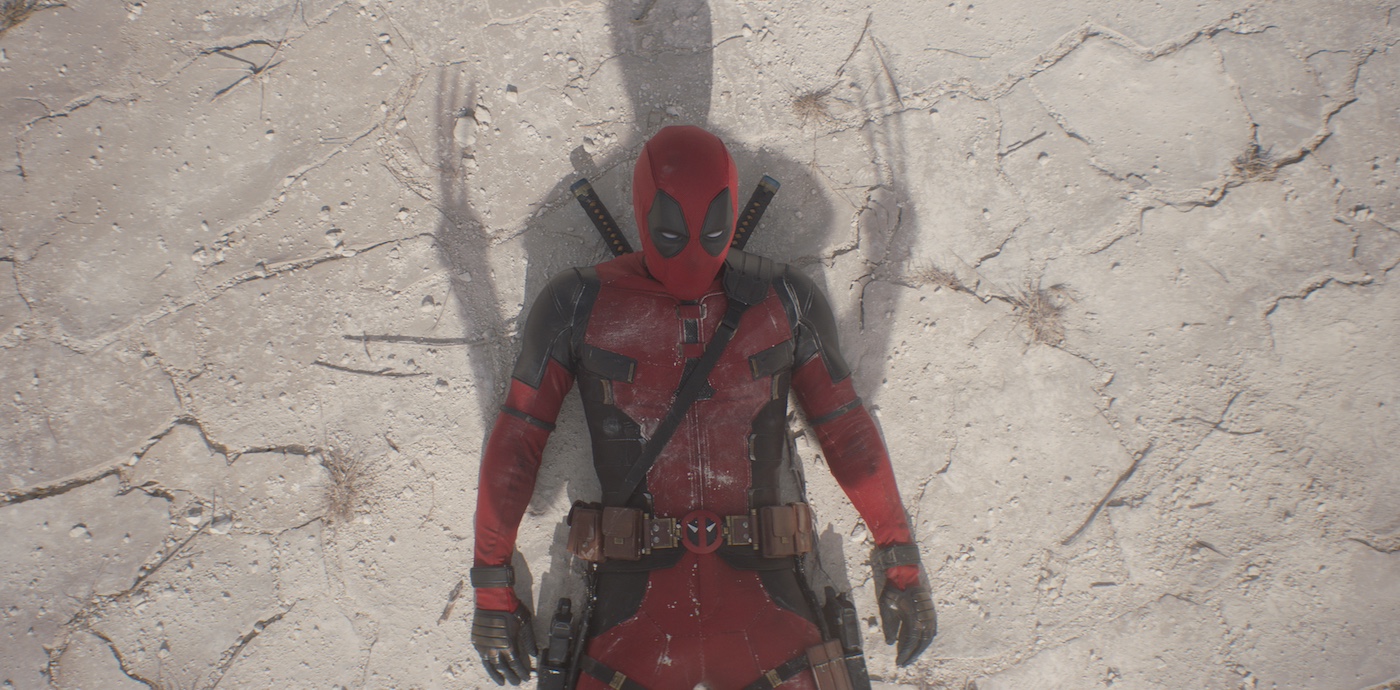
Even if Deadpool & Wolverine hadn’t become the year’s top-grossing movie, self-described comics nerd-turned-screenwriter Zeb Wells would have been thrilled just for the opportunity to furnish Ryan Reynolds’ Deadpool character with snarky wise-cracks. Joining Reynolds, director Shawn Levy, Rhett Reese and Paul Wernick, Wells, who previously penned “Venom: Dark Origin” and “The Amazing Spider-Man” comic books, says, “I was a huge fan of the first two Deadpool movies, so for me, getting to write a movie about Deadpool with Deadpool in the room—I was pumped.”
The R-rated blockbuster resurrects Hugh Jackman’s Wolverine and his retractable claws seven years after he died in Logan. The squabbling superheroes embark on a gory, cameo-studded mission to save their multiverse timelines.
Speaking from his home state of Colorado, Wells discusses life inside the writer’s room and explains how Deadpool & Wolverine‘s post-apocalyptic “Void” bears more than a passing resemblance to a rival blockbuster franchise.
Audiences have been laughing, shouting, and connecting in a very boisterous way to Deadpool & Wolverine. Why do you suppose that is?
Ryan does so well with that character, especially because it feels like everyone watching the movie is on the joke and going along for the ride. I saw the premiere, and everyone was cheering, but I thought, “Well, that’s a premiere audience.” So I got out to Colorado to see how the movie played there, and people were cheering just as loud, if not louder.
Deadpool & Wolverine has five writers. What was it like collaborating with so many people?
Usually, when you see that many names on a script, it’s because people came in after the first writers, but they weren’t really working on the script together. Deadpool & Wolverine was a situation where we were all breaking the movie together, writing it together, and basically working as a small writers’ room.
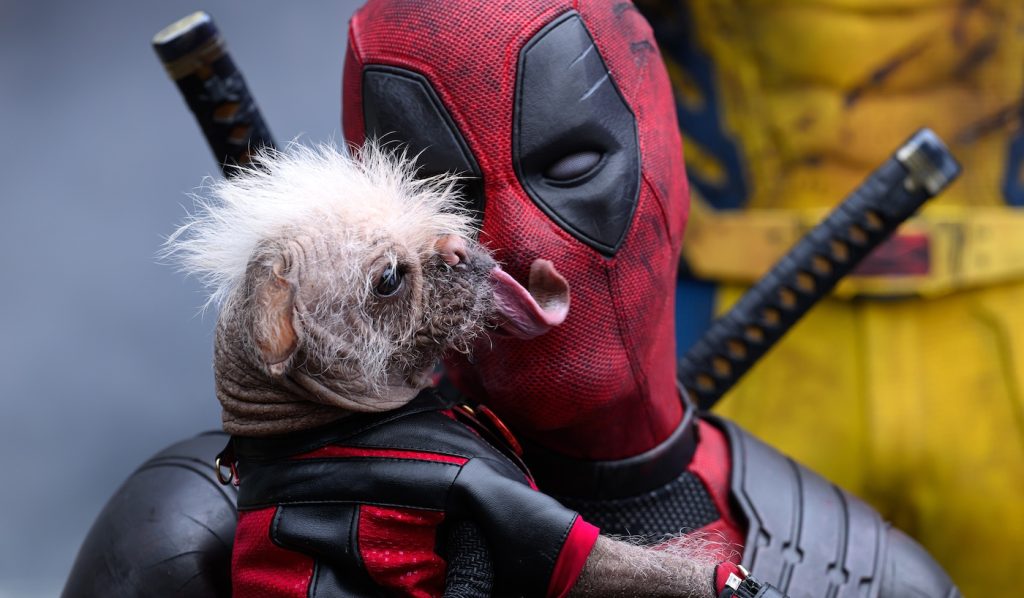
Did each of you focus on a different aspect of the story?
Shawn and Ryan kept an eye on the emotions and the heart of the character, and then I brought a lot of comic book knowledge. Because I had the nerd credentials, I’d get in there every once in a while and throw in a little nugget that I thought people would get a kick out of.
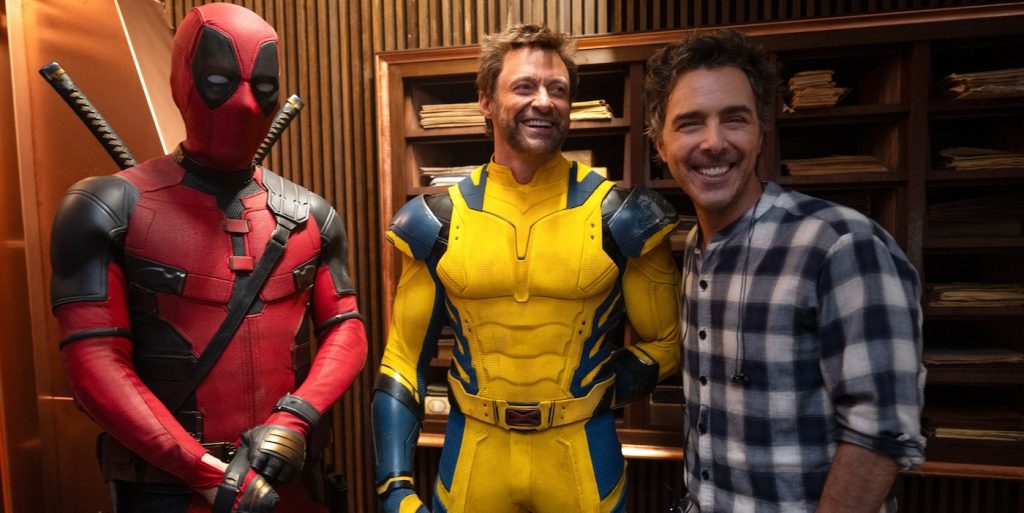
Ryan Reynolds spent years thinking about how to make a third Deadpool movie. At what point did you get involved?
I did a little consulting on the project when Ryan, Shawn, Rhett, and Paul were trying to figure out the third Deadpool. Then they got the call from Hugh Jackman, and all these ideas that had been percolating went away. That’s when I came on but was out of the loop about Hugh. After I’d signed the papers and the NDA, Shawn called me and said Hugh was in. I was so excited I almost threw up.
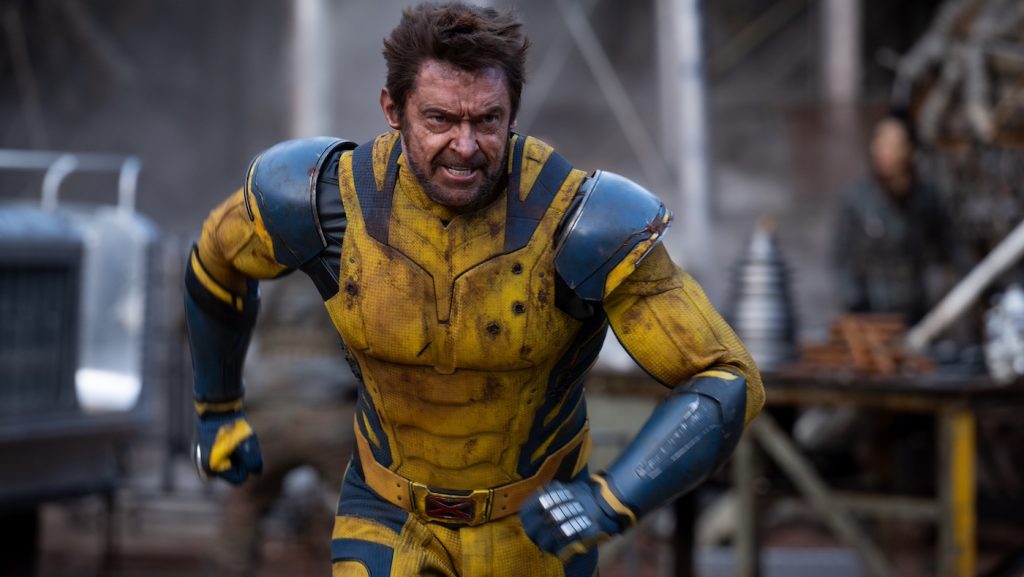
This movie boasts many jokes per minute. What was the process for generating all that funny dialogue?
Deadpool’s not allowed to say anything boring, so we spent a lot of time writing those scenes. They have to move the story along and move the character along, but they also have to be as funny as Deadpool can be. That’s a very high bar to hit when Deadpool’s in the room, so I really needed to bring my A-game. The things I’m most proud of are the jokes I wrote that made it to the screen because I know if Ryan says the line, he must think it’s funny, too, or else he’d punch it up. For me, it was exhilarating to think, “I wrote something Deadpool wants to say.”
Deadpool occasionally becomes sincere and says things like “I want to matter.” Did you guys build in those serious moments from the start?
Anywhere Deadpool goes, it’s going to be funny, by nature, and that buys you little heartfelt moments here and there where Deadpool can drop the armor. It’s a pretty cool story machine with a lot of fun levers to pull.
The main lever being Hugh Jackman as gruff Wolverine. Unlike Deadpool, he does not crack jokes.
Which was great because with Hugh bringing all that soul to the character, that’s where you get the [dramatic] tension. Wolverine’s been through a lot of pain and trauma. He’s trying to be a good guy, but his violence comes out at odd times. We wanted this to be a funny Deadpool [movie], but it’s got to be a Wolverine movie as well, so that was the challenge.
SPOILER ALERT
Who came up with that crazy “Mad Max” parody when Deadpool and Wolverine wind up in the “Void” hellscape?
I made up the idea that the situation could maybe be Mad Max-like, and then Shawn ran with it. I mean, it’s almost impossible to do an apocalyptic wasteland [without referencing Mad Max] because they did it so well.
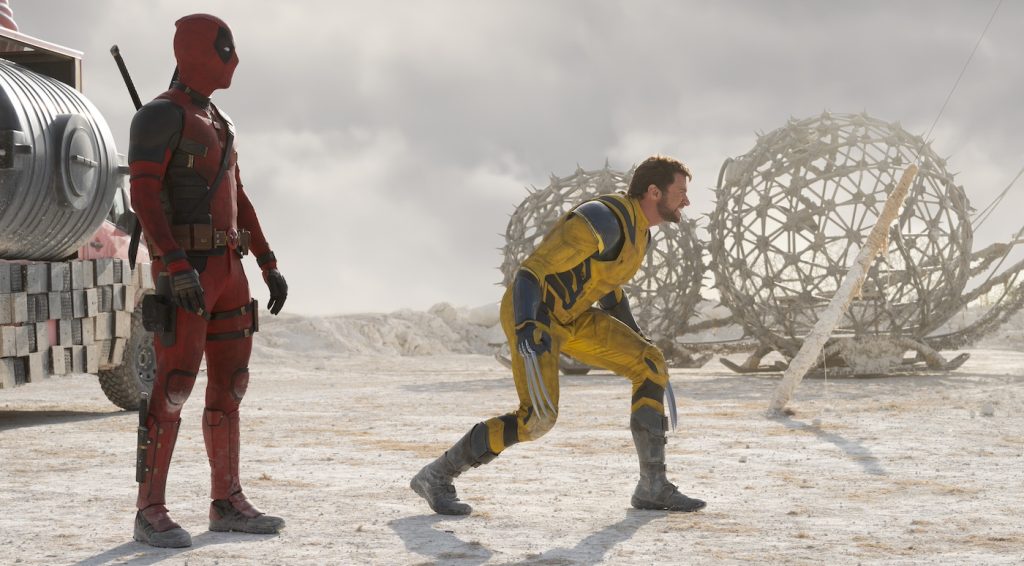
Logistically speaking, how did the five of you collaborate? Did you gather physically in the same room at the same time or . . .
There was a lot of Zoom, then writing, then getting back on Zoom. At one point, Rhett and Paul were summoned to meet with Ryan. I went to New York to meet with Ryan and Shawn. We’d do our revisions on Final Draft and pass them around.
Deadpool & Wolverine fans have gone wild over the cameos from famous actors who pop up out of nowhere, do a scene, and disappear. Was there a lot of re-writing where you weren’t yet sure which actors would wind up being in the movie?
On big movies with big name actors, there’s always a lot of moving parts, schedules, and availabilities. Also, the MCU is a big, sprawling beast, and if you did something with [certain] characters, it would mess them up. So yes, there are old versions of the script with other characters. The [actors] come in, they leave, you beg beg beg, and suddenly they’re back. You just hop on and do the best you can with the information you have.
You talked earlier about sort of serving as the writing team’s resident nerd based on your background as a comic book writer. For a lot of people, being able to write comics for a living probably sounds like a dream job. How did that happen for you?
I went to film school at CU Boulder. I learned enough that when a comics magazine held a short film contest, I had a friend who looked like the Incredible Hulk so we painted him green and made a dumb short film about how the Hulk had lost his job and was down on his luck. That won the contest. Then someone from Marvel saw the video and offered me a job writing comics.
Circling back to Deadpool & Wolverine, this film is loaded with self-referential humor. As Wade Wilson, Ryan Reynolds says, “Yes, I’m a character in a story, but I’m also an actor in a movie from Marvel, and I’m going to make all kinds of inside jokes about the superhero film industry.” How did you approach the use of pop culture references in the script?
There’s so much superhero literacy now just because kids have grown up with these movies, and people like me—who read comics when we were kids—for many years just wanted the superhero movies to be good, and suddenly, they got good. Now everyone knows who Spiderman is, and they know who Captain America is, so this movie plays really well to the common knowledge we all share.
This article was first published on The Credits